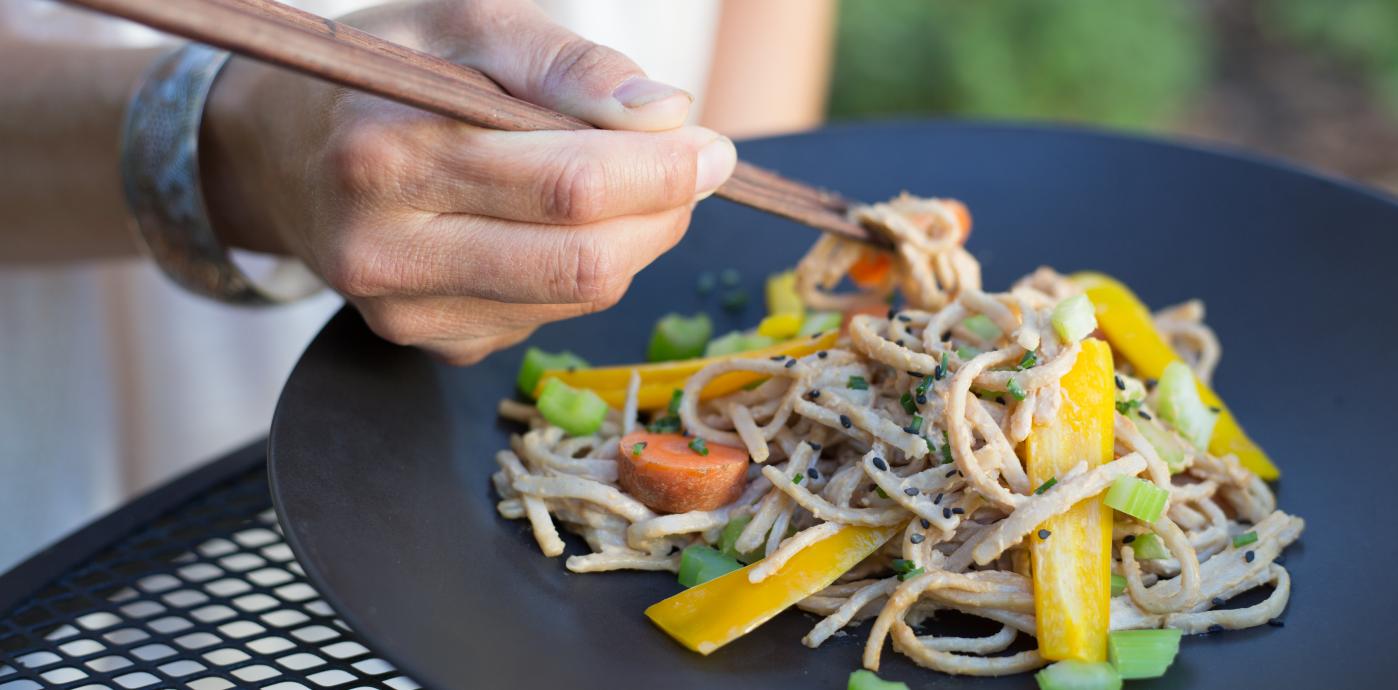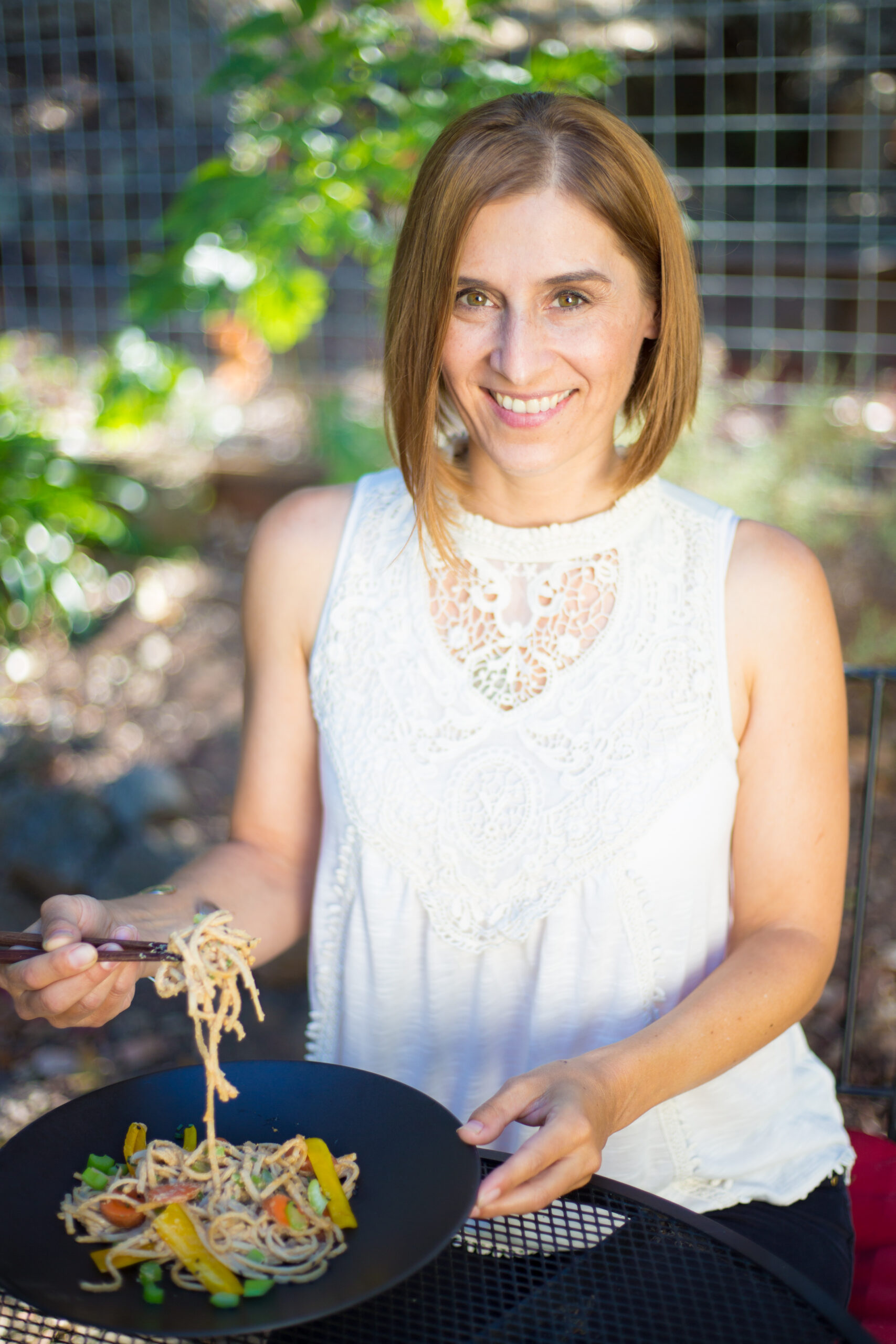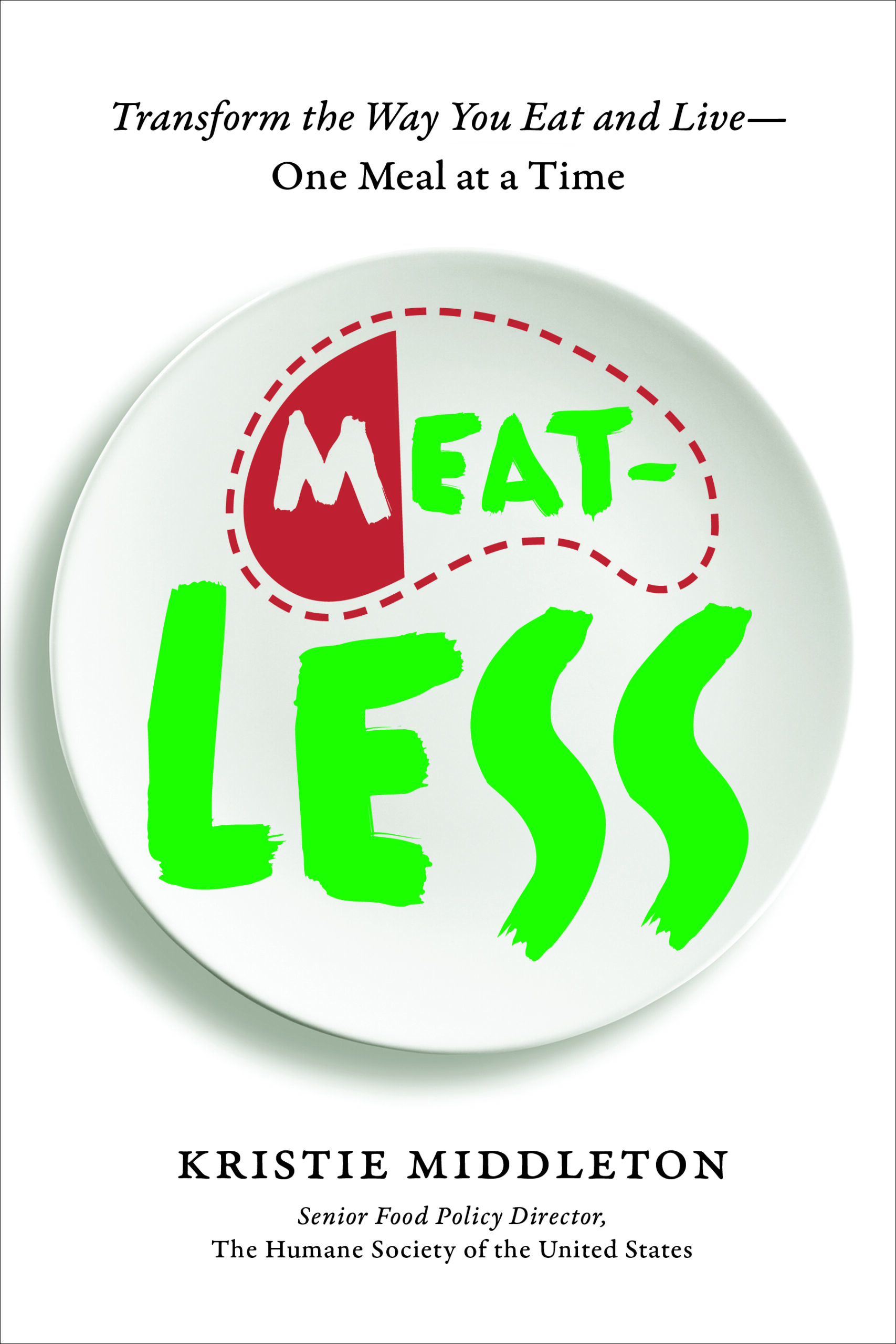Here at the Oldways Vegetarian/Vegan Network (OVN) we’re always excited to discover new books that promote plant-based diets and that align with our mission to encourage people to follow traditional diets and explore more ways to put more plants and whole grain foods on their plates. We’ve enjoyed exploring Kristie Middleton’s MeatLess (Da Capo Lifelong Books; March 7, 2017), which offers dozens of reader-friendly, easy-to-make recipes that put a premium on fresh ingredients and distinctive flavors. Kristie is passionate about her subject, yet her tone is friendly and approachable, making this a very useful book for all skill levels. It would be a great gift for a friend who wants to embrace a healthier diet. Kristie is the Senior Food Policy Director for the Humane Society, and we were glad to catch up with her and learn more about how this book also its into her organization’s role in promoting plant-based diets.
Q&A with Kristie Middleton
Oldways: Some of our readers may not have a clear understanding of the Humane Society’s interest in reducing meat consumption. Can you explain their position and their goals for the future
Kristie Middleton: The Humane Society of the United States is the world’s largest animal protection organization. We’re best known for our work helping cats and dogs (and we do a lot of it including offering free and low-cost spay and neutering services to hundreds of thousands of animals annually), yet our outreach extends far beyond companion animals. My team works to help end the abuse of animals on factory farms. We work with the worlds biggest food companies to improve the welfare of animals in their supply chains and universities, hospitals, and to slash meat purchases. We advocate the Three Rs: reducing or replacing consumption of animal products, and refining our diets by choosing products from sources that adhere to higher animal welfare standards.
OW: As the Senior Food Policy Director for the organization what have been some of the biggest changes you’ve seen in the past five years in the way Americans are eating
KM: I follow the industry trade publications for my work and for several years running, the trends headlines read, Vegan Went Mainstream (Food Management) and Go Veg or Go Home (Nations Restaurant News). 2017 is no different. Number one in Forbes Magazines 5 Top Food Trends You’ll See in 2017Vegetarian comfort food. No longer a niche, more people from vegans to meat-and-potatoes guys and gals are interested in eating plant-based at least some of the time.
Meatingplace, the meat industry’s own trade magazine, commissioned research and found 70 percent of meat eaters substituting a non-meat protein in a meal at least once a week and 22 percent saying they are doing it more often than a year ago. Plant-based eating has moved from the fringes and is now firmly entrenched in the mainstream, and I couldn’t be more excited!
OW: What prompted you to write MeatLess
KM: As a full-time advocate, I always want to be as effective as I can at the thing I’ve devoted my life to. I did some research into diet change and found that a key motivator for people who became vegetarian or vegan or who reduced meat consumption was watching a documentary or seeing a lm. I don’t know how to make lms, but I love to write! At the same time, I found routinely in my work that the reduction approach is welcoming for people. I didn’t become vegan overnight, nor did most of the people I know who are vegan. Researchers from Faunalytics found that most vegetarians who stuck with the diet had made the transition gradually. Some people may go vegetarian or vegan; others may stick with a Meatless Monday. Theres not a one-size-ts-all. I wanted to create a book that gave people the sense that they could make small changes that when stacked up will make a big difference.
OW: Did writing the book lead to any changes in your cooking style or repertoire
KM: Writing the book helped me be more mindful of the challenges to making diet changes. When we understand the importance of eating a more plant-based diet and the consequences of large-scale animal agribusiness, it can be overwhelming and lead to a sense of urgency. At the same time, our eating habits are deeply ingrained and wrapped up in all kinds of personal and cultural traditions. So we have to make change as easy as possible. One key way to do that is to enlist friends and family to join you on the journey. Eating habits are contagious. In research published in The New England Journal of Medicine, researchers found that an individual’s likelihood of becoming obese rises by 37 percent if his or her spouse is obese, 40 percent if a sibling is, and 57 percent if a close friend is. We eat like our community, so bring yours along for the ride.
OW: What do you think is the best way for someone who is just learning about plant-based diets to use your book
KM: I hope after reading MeatLess, readers will view me as a trusted friend. Learning about our industrial food system can be a lot to take in. In the book I share how agribusiness impacts our health, the environment, workers, and animal welfare. I also share the common barriers to diet change and how to overcome them and extend compassion and permission for people to do what feels doable, praise them for taking the first steps, and provide resources for meeting their goals. And at the end I offer some easy meal swaps and ideas as well as some of my favorite recipes.
We eat like our community, so bring yours along for the ride.
OW: If you could pick one recipe from the book as a favorite, which one would it beand may we have your permission to include it here
KM: Absolutely. Noodles with Peanut Sauce! This is a go-to recipe in my house for when I’m in a hurry to make dinner but want a meal that will ll me up and also provide plenty of nutrients. Nutty peanut butter and salty soy sauce combine with a little sweetness plus hot sauce for an explosion of flavor. Packed with protein and ridiculously easy to prepare, this dish is a hit with kids for the taste and with parents for its ease. Adjust spice as your family likes it.
NOODLES WITH PEANUT SAUCE
Yield: Serves 4
Time: 15 minutes
Sauce:
1 cup crunchy peanut butter
4 tablespoons soy sauce or tamari
2 teaspoons agave or other sweetener
1 teaspoon hot pepper sauce like Sriracha, or more or less to taste
2 cloves garlic
1 to 1-½ cups water
2 teaspoons toasted sesame oil
Vegetables:
4 carrots, chopped into coins
2 cups broccoli forets
2 cups frozen edamame
Crushed peanuts or sesame seeds to garnish, optional
1 16-ounce package of your favorite noodles, cooked according to package instructions (spaghetti, angel hair, soba, and udon all work well)
Add all sauce ingredients to a blender or food processor, or use an immersion blender to combine well. If you like a thick sauce, use less water. Set aside.
Steam carrots, broccoli, and edamame for 4 minutes or until the broccoli is bright green.
Georgia Orcutt, Program Director, Supermarket RD Symposium and Oldways Vegetarian Network










Leave a comment